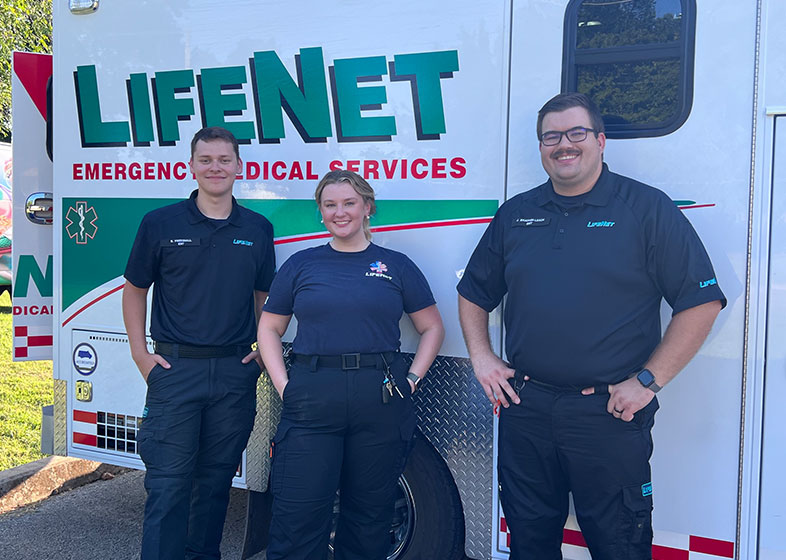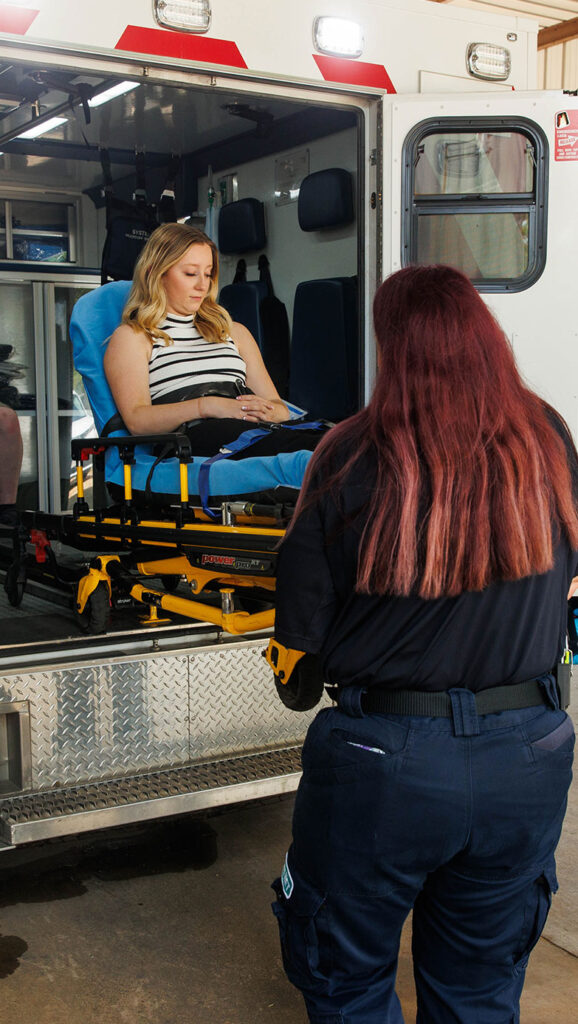Why You Need a LifeNet Membership
Many people mistakenly believe calling for an ambulance automatically means their insurance will cover all of the transport cost.
Unfortunately, many people are not prepared to pay their coinsurance or deductibles …. or worse yet, they’re left with a financial burden when their ambulance transport is denied.

As a LifeNet Member, we will accept your insurance company’s payment as payment in full. Any remaining balance on your account will be waived under your membership discount. If your insurance plan requires you to pay 100% of your bill as part of your deductible, we will apply a 40% membership discount to the balance you owe.
What Your Membership Covers
- Save 40% on billed ambulance charges for GROUND ambulance transport
- No Out of Pocket Expenses if your insurance pays a portion of billed ambulance changes
- Protect all full-time residents of your household from financial hardship

We Fight For You
Because we care about you before, during, and after an ambulance response, LifeNet’s billing office staff will do everything possible to exhaust all possible private or third party reimbursement for ambulance fees on our members’ behalf. If a member’s Medicare or private insurance denies a ground or air ambulance claim for any reason, LifeNet will appeal the claim. Only after LifeNet has appealed and the claim is still denied, will LifeNet discount a member’s ambulance bill by 40% and send them an invoice for services rendered.
LifeNet membership benefits are restricted to “medically necessary” services. These benefits cover emergency and non-emergency response and transportation to healthcare facilities in LifeNet’s service area where alternative forms of transportation (e.g. wheelchair transport, private car, taxi) would be medically inappropriate given the patient’s condition. Patient must provide upon request physician documentation of medical necessity for non-emergency transports.
In addition, by purchasing a membership you are investing in a vital community service. Your monetary investment provides health education and community awareness programs and assists in the purchase of equipment thus enabling us to remain progressive to the needs of the community and provide the best care possible.
Your LifeNet Membership is NOT Insurance
LifeNet’s memberships are convenient methods of eliminating insurance deductible fees and insurance co-payments. Uninsured members or transports not meeting insurers’ medical necessity requirements will receive a 40% discount on billed charges.
Your Guide to Understanding Insurance Billing
This guide is designed to help you understand some of the questions you may have about the ambulance billing process, as you decide if a LifeNet Membership is worth the investment for your household.
FAQ
The patient transported, or the legal guardian of the patient, if a minor, is ultimately responsible for all billed charges for ambulance transports.
Your cost for your ambulance transport depends on both the distance you were transported and the level of care you received in the ambulance.
Our medical crew will never deny services due to a patient’s inability to pay. Our crews are trained to focus their attention on providing the highest level of care, rather than the billing aspect of their services.
Our mileage rates reflect the costs attributed to the use of an ambulance, which rid share companies do not have. These include costs related to things like medical equipment, maintenance, fuel, depreciation, medical crew staffing and training.
Medicare Part B only covers ambulance transportation in an emergency or when any other form of transportation would endanger your health. It does not cover non-emergency transportation between home and a doctor’s office, for patient/family convenience, for physician preference or convenience, or for elective use of an ambulance when not medically necessary.
Generally, Medicare will pay for the mileage from the point of origin to the closest most appropriate facility with an available bed within the discharging hospital’s service area. If the destination facility is outside of this service area, Medicare will only pay for transportation to that closest facility. You will probably be responsible for mileage incurred beyond this point.
If you were involved in a motor vehicle accident (MVA), LifeNet will bill your automobile insurance. Most health insurance plans do not pay for transports related to MVAs unless they have received a letter stating that the driver does not carry a medical payment benefit on their auto policy. This letter is often called a “no med-pay letter” or “declaration page.”
Insurance coverage varies widely from policy to policy. You should review your insurance policy to understand your ambulance transport benefit. Many patients are responsible for deductibles, co-pays, or co-insurance.
LifeNet will file a claim with your insurance company for the medical transport, but payment in full remains your obligation regardless of how insurance processes your claim. Please contact your insurance company for coverage questions.
Unfortunately, not all claims filed by LifeNet on your behalf are paid by Medicare or private insurers. Your insurance plan has its own specific criteria for payment of claims. Not all transports meet their criteria, which may result in a denied claim.
For example, some insurance companies only pay for an ambulance transport if the patient is admitted to the hospital. Alternatively, they may apply your ambulance bill towards your annual deductible, making you responsible for the transport bill. For more information, you can consult with either Medicare or your insurance carrier.
LifeNet patient account representatives may be able to help provide additional information for you to appeal an insurance denial. They are very knowledgeable in the procedures for re-filing claims.
As a not-for-profit service, LifeNet depends on fees for services delivered to cover our day-to-day operating costs of providing care to the community 24-hours a day, 365 days a year. If you do not have insurance, or if your claim is denied, LifeNet offers a charity program for individuals who qualify for financial assistance.
If you do not qualify for our charitable assistance program, and you are unable to make payment in full, a payment plan can be arranged to accept reasonable monthly payments.
As a LifeNet Member with insurance coverage, we will accept your insurance company’s payment as payment in full. Any remaining balance on your account will be waived under your membership discount. If your insurance plan requires you to pay 100% of your bill as part of your deductible, we will apply a 40% membership discount to the balance you owe. If you do not have health insurance, you will receive a 40% discount on billed charges for emergency medical transport.
